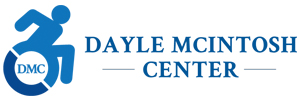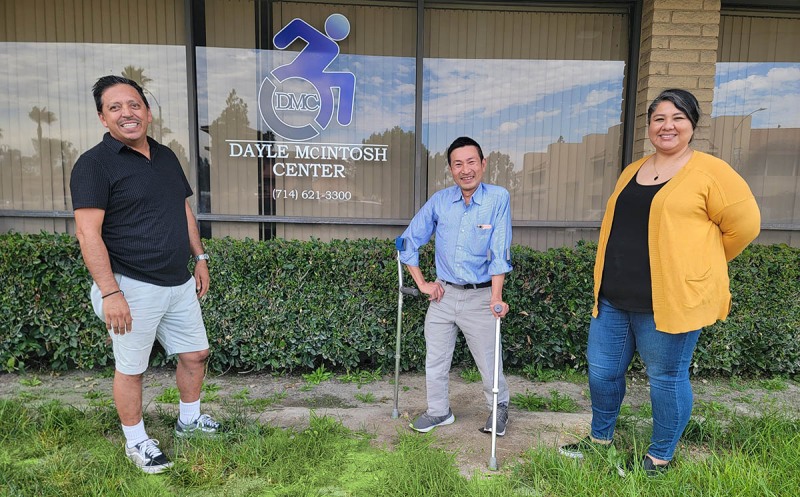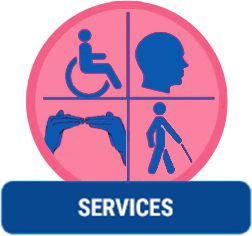Watch how to sign ‘individual’ in American Sign Language
Watch how to sign ‘advocacy’ in American Sign Language
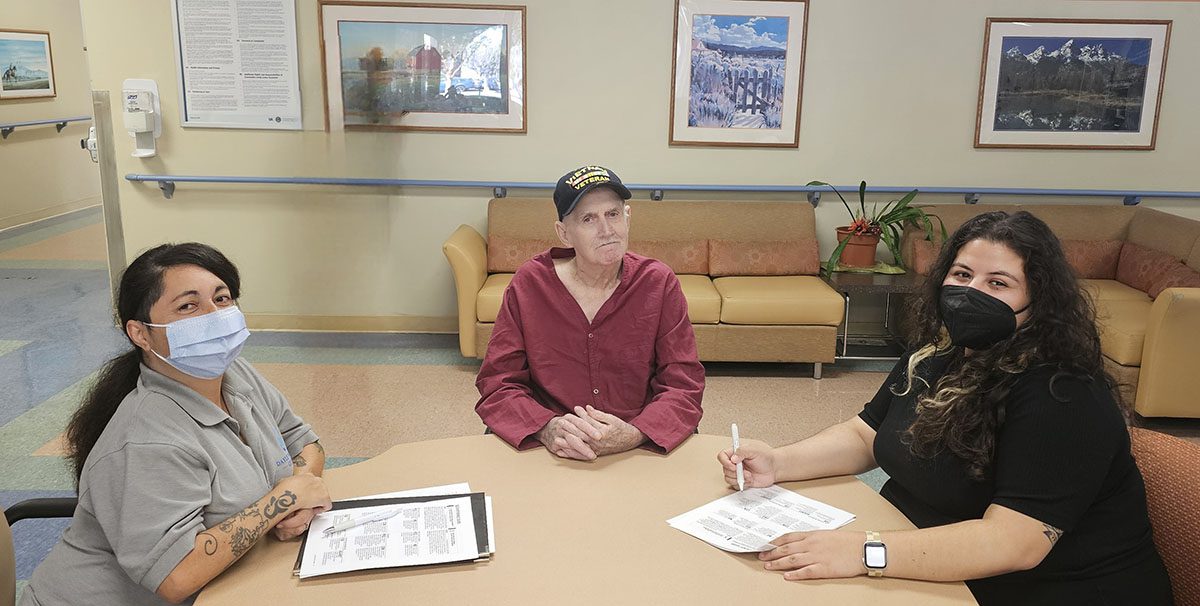
At the Dayle McIntosh Center (DMC), we offer individual advocacy skill building to empower our consumers in reaching their goals and addressing barriers along the way. We understand that every person’s needs and concerns are unique, so we work closely with each individual to help them figure out the best steps to take. As a result, we provide a wide range of individual advocacy services at the Dayle McIntosh Center.
Program Eligibility
If you have a disability and live in Orange County, you can become a consumer of the Dayle McIntosh Center. As a consumer, you can access various services, including advocacy support.
Referral Process
Anyone may refer a person with a disability or older adult residing in Orange County, CA to Dayle McIntosh Center for individual advocacy assistance.
How Individual Advocacy Is Provided
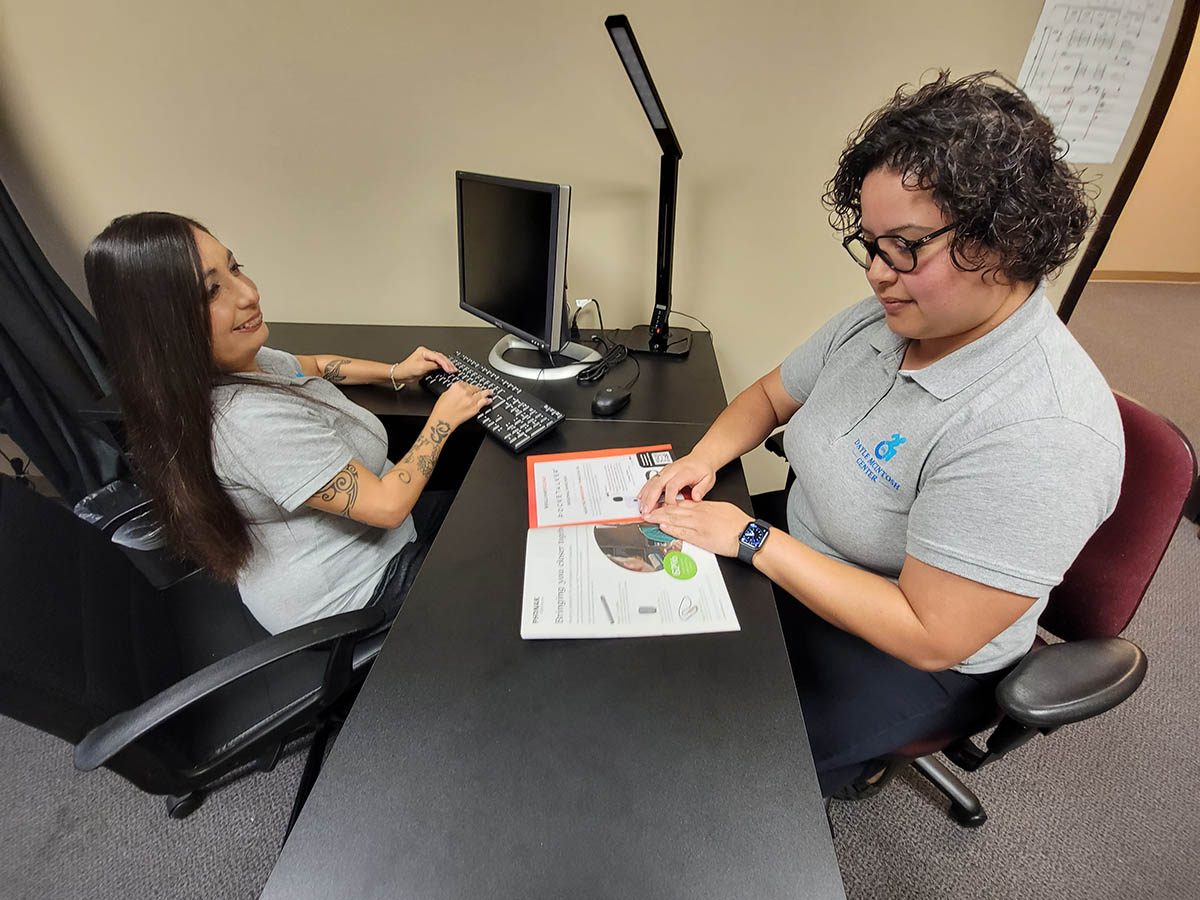
Individual Advocacy through DMC is support with specific things like getting services or benefits, fighting discrimination, and accessing public places. This help is provided based on the area that relates to each individual’s concern. Advocacy services are available at our offices or other community locations, depending on the needs.
Here are some common types of individual advocacy offered at DMC:
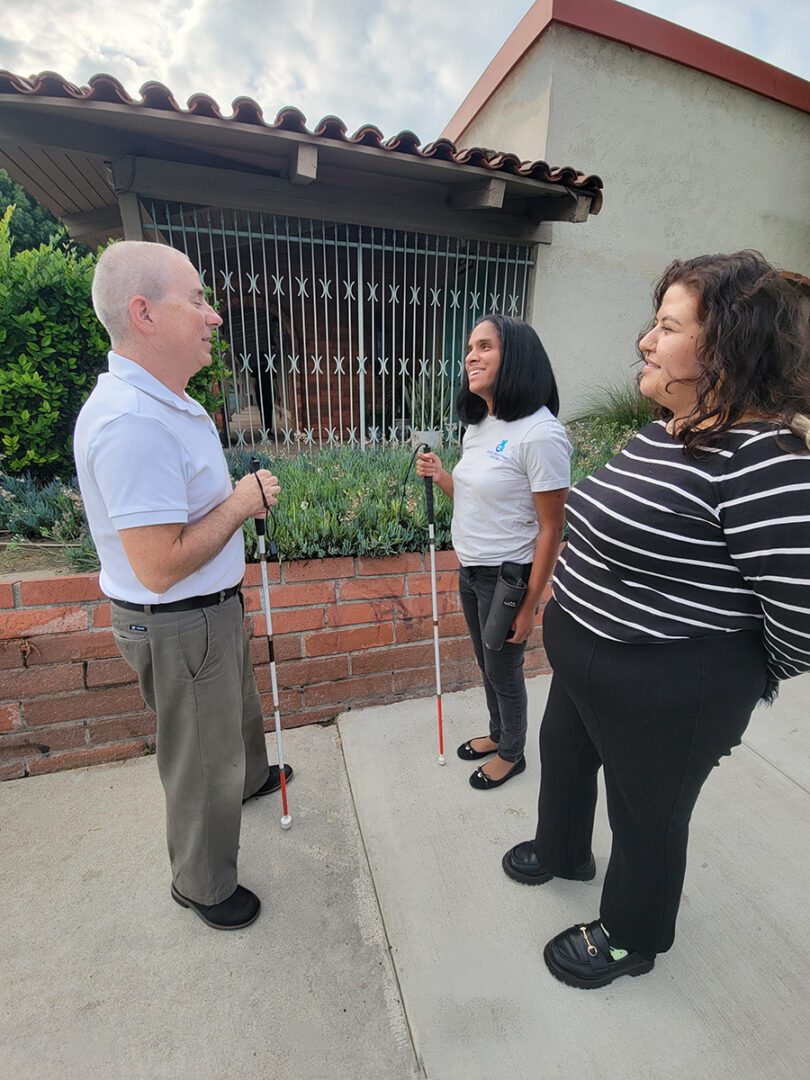
Aging with Vision Loss:
- Partnering to advocate for accessible tools like talking glucometers, requesting audible traffic signals
- Promoting awareness of the needs of visually impaired individuals in assisted living or retirement communities.
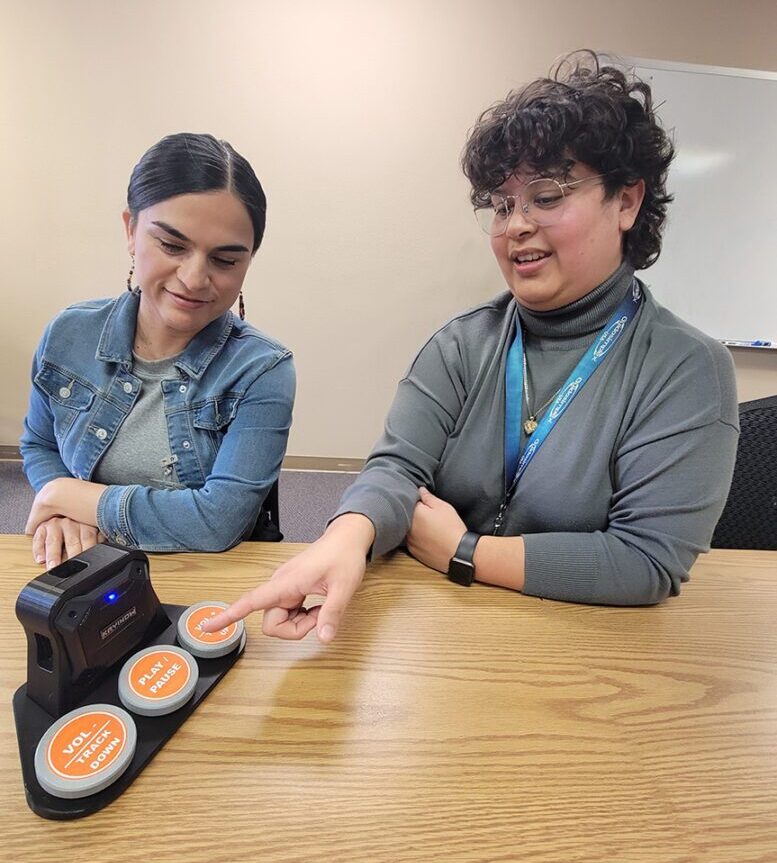
Assistive Technology:
- Assisting in accessing communication tools or materials in suitable formats.
- Advocating for funding for devices or training, and working towards making assistive technology available through schools, employers, and other organizations.
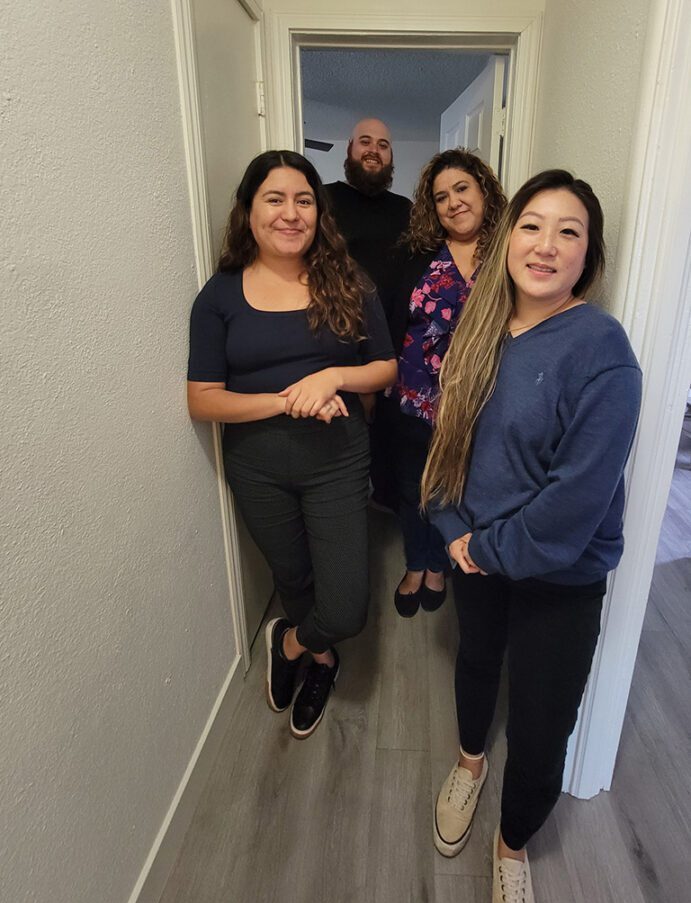
Housing:
- Providing representation and assistance in cases where individuals are at risk of losing rental vouchers or facing eviction.
- Supporting them in filing fair housing complaints and mediating disputes with landlords.
- Addressing other housing-related concerns.
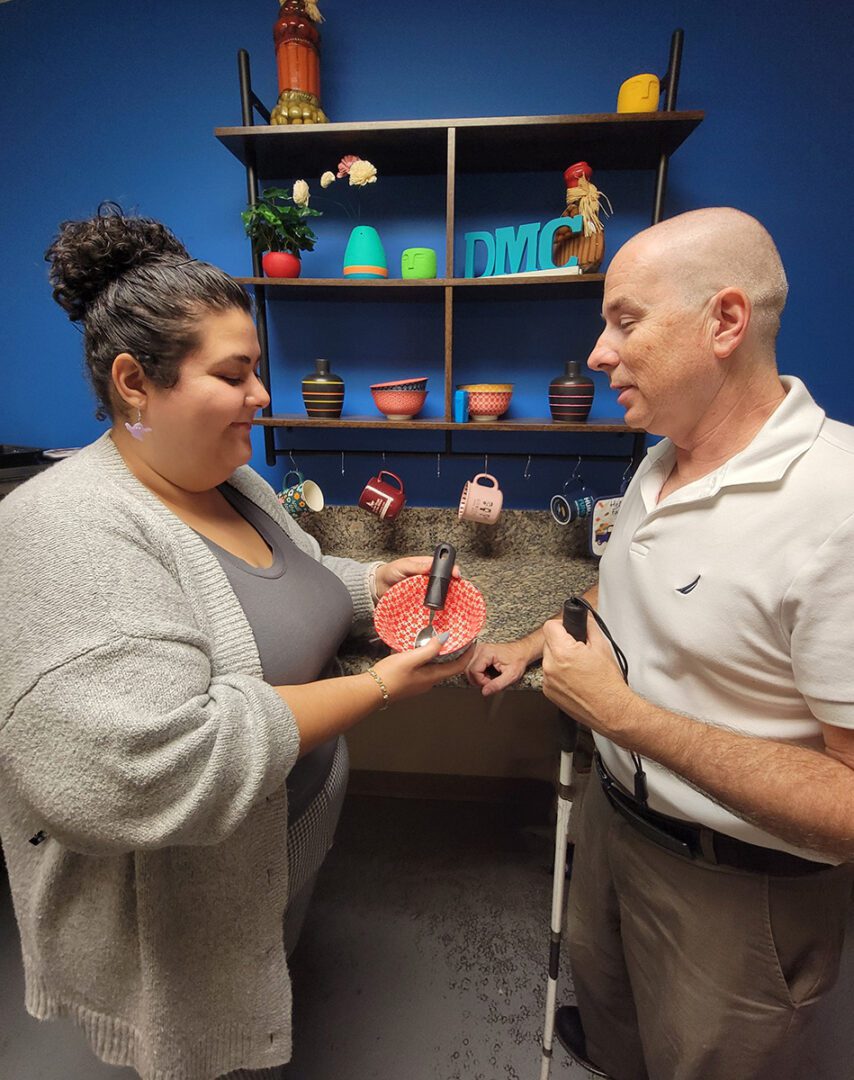
Independent Living Skills:
- Assisting in acquiring tools or training for independence that may have been previously denied.
- Advocating for accommodations like sign language interpreters and providing guidance in filing discrimination complaints.
- Affirming the right to live independently and helping with applying for disability-related benefits and services.
Personal Assistant Services:
- Assisting in resolving conflicts between individuals and their attendants.
- Helping with obtaining approval for In Home Supportive Services (IHSS) and working with IHSS to secure additional personal assistant hours.
- Exploring options for housing vouchers that allow for a live-in caregiver.
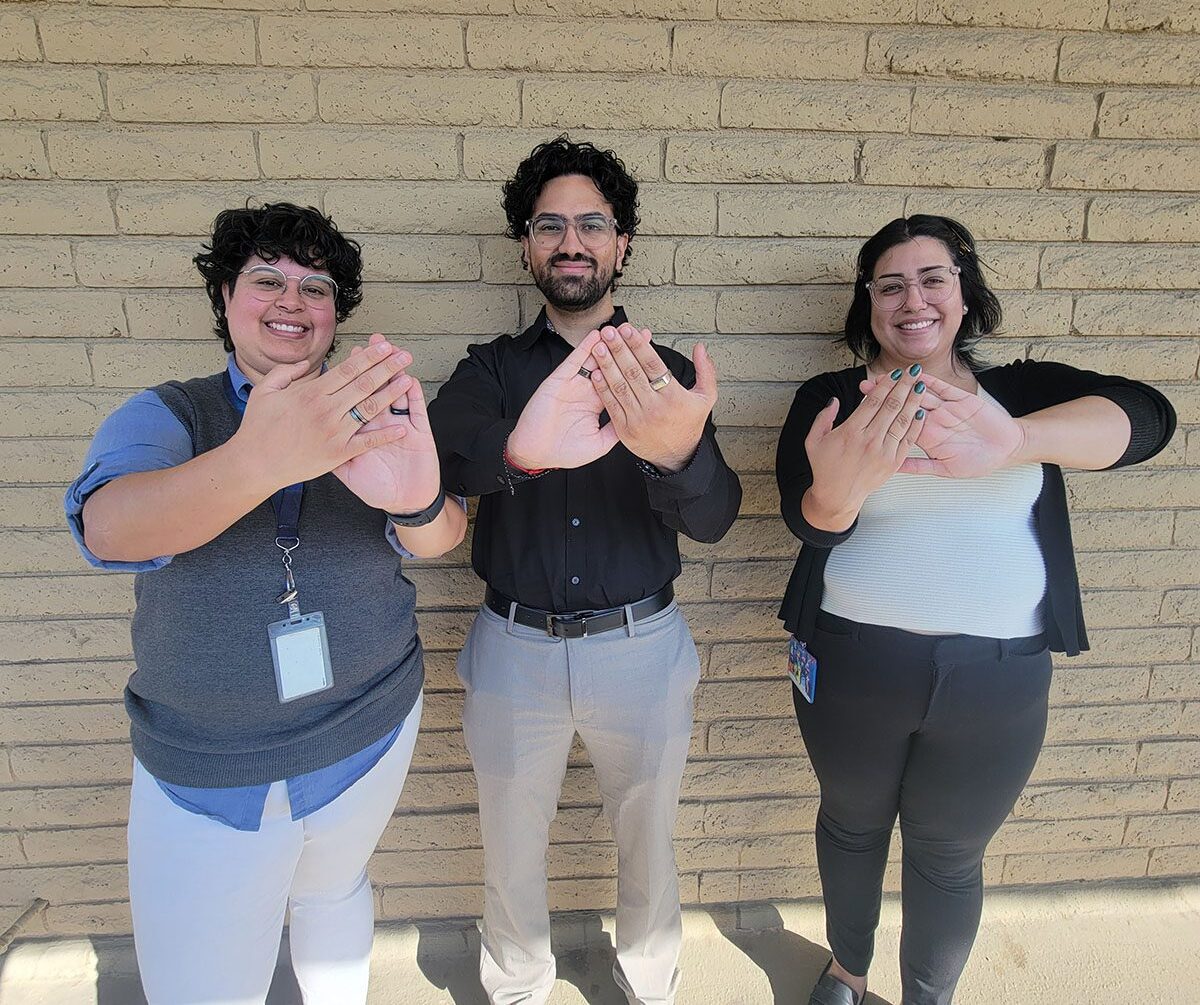
Transition from Institutions:
- Ensuring individuals receive the services they need in the best possible environment, without interference from institution staff.
- Representing their wishes and arranging additional support if necessary.
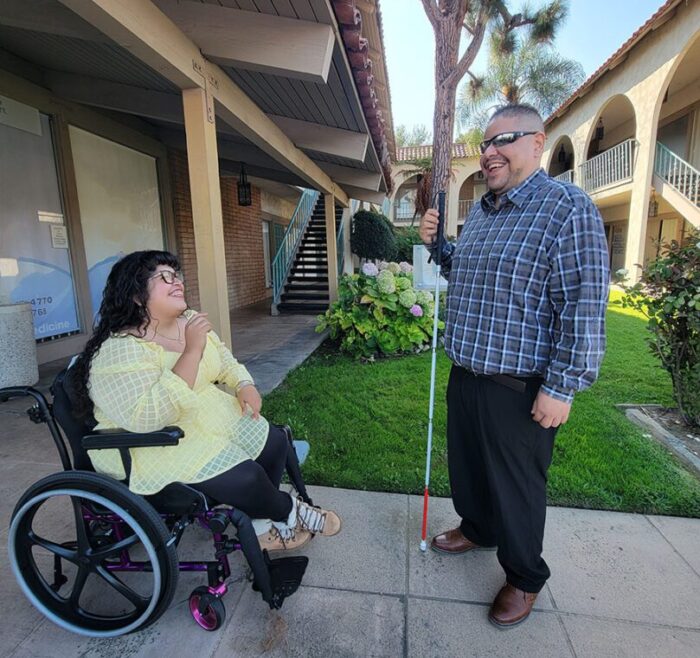
Youth Transition Services:
- Providing guidance in developing individual education plans (IEPs), accompanying individuals to IEP meetings to ensure their concerns are heard.
- Assisting parents or individuals in requesting new assessments and providing information on rights and options for transitioning into adulthood.
If you or someone you know needs individual advocacy support with an issue not identified above, please reach out for assistance. Advocacy assistance continues until the desired outcomes are achieved, individuals discontinue participation for a specific period, voluntarily withdraw from the program, or if they relocate out of the service area.
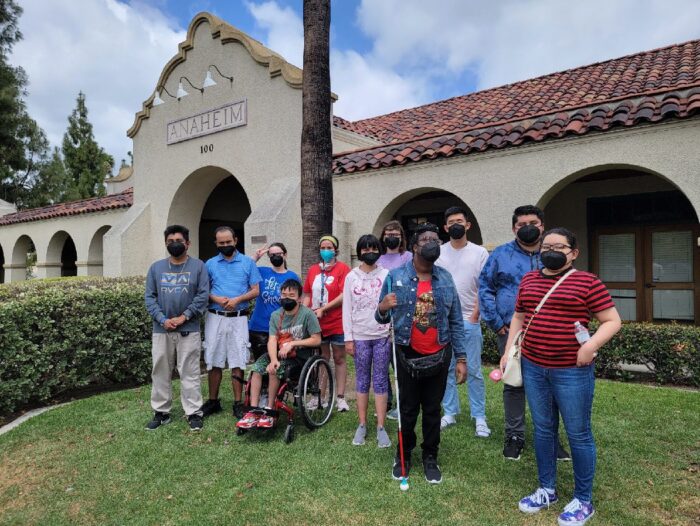
Program Success Story
A d/Deaf person with minimal language skills asked for help in appealing a decision to deny their unemployment insurance. They were fired from their job of eight years because a coworker accused them of being aggressive. After talking with the person, the Deaf Services Advocate concluded that they were unfairly fired due to a lack of information and miscommunication.
The person didn’t have proper support from an advocate or someone who understood the cultural and language challenges faced by Deaf individuals. The Deaf Services Advocate attended the person’s appeal hearing with a skilled Interpreter who effectively communicated the person’s thoughts to the Judge. As a result, the appeal was successful, and the person received the unemployment insurance payments they were eligible for during that time.
